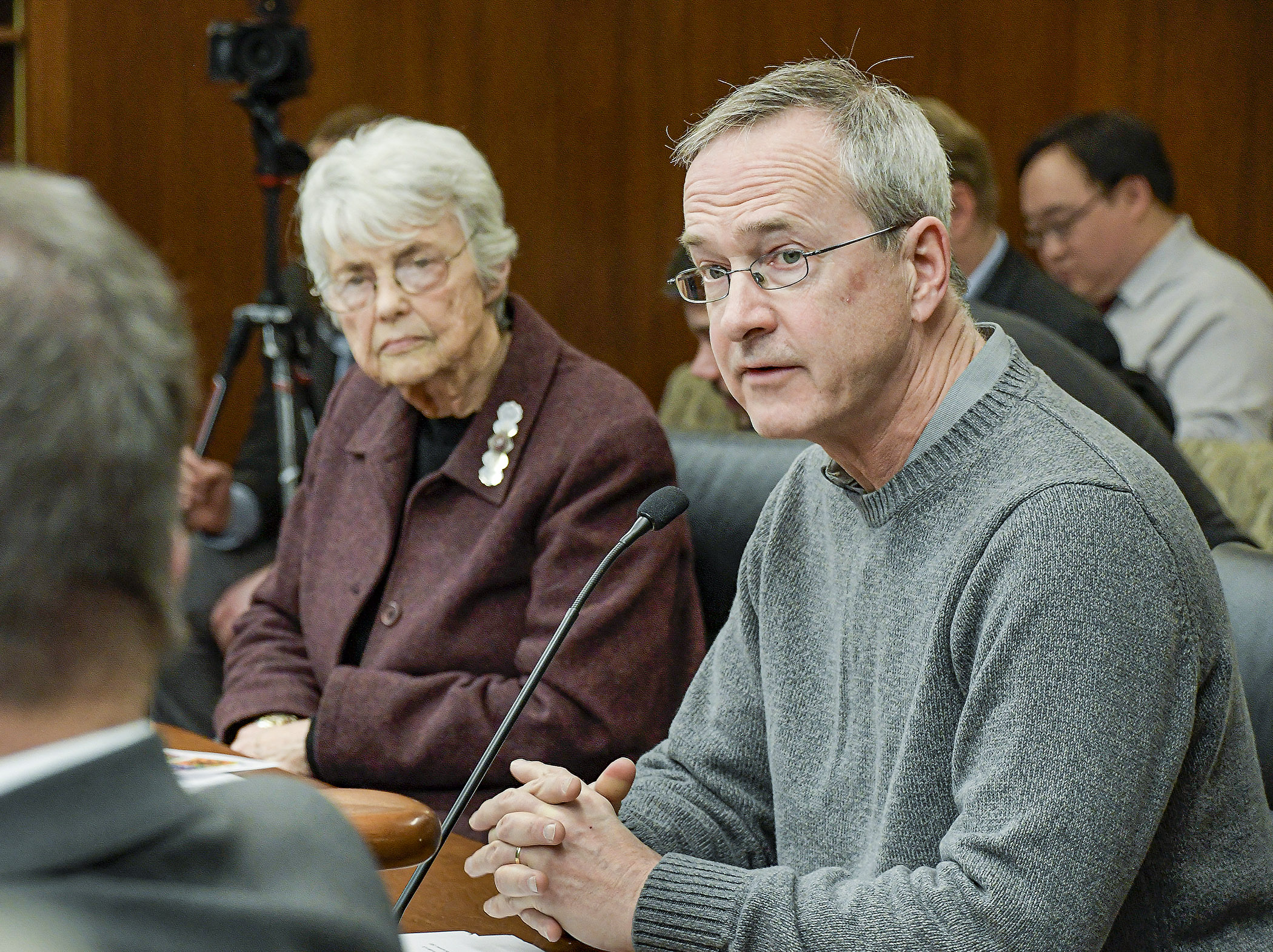Pro-pollinator bill proposes a different kind of sanctuary city

Minneapolis wants to become something like a sanctuary city for bees, butterflies and other pollinators. But current state law may preclude the city from doing so.
Sponsored by Rep. Jean Wagenius (DFL-Mpls), HF1255 would allow cities to enact local ordinances regarding pesticides. Specifically, cities could prohibit the use of pesticides lethal to pollinators and require those applying pesticides to affix warning signs to treated areas that pets and children should be kept off for 48 hours.
What pesticides could be banned under the bill? It would be limited to those deemed lethal to pollinators by the Environmental Protection Agency, which keeps such a list on its website.
On Tuesday, the House Environment and Natural Resources Policy Committee approved the bill and referred it to the House Agriculture and Food Finance and Policy Division. It has no Senate companion.
In 2015, Minneapolis passed a resolution to decrease use of pesticides, and 44 other Minnesota cities have taken similar steps, according to Erin Rupp, founder and executive director of Pollinate Minnesota. The bill would make it possible to regulate certain pesticides at the local level.
“Our state bee, the rusty patch bumblebee, is endangered,” Rupp said, “and five of Minnesota’s 23 bumblebee species are approaching endangered status. … Pollinators contribute $24 billion to our U.S. economy annually.”
But Scott Frampton, former president of the Minnesota Nursery & Landscape Association, said the ability to have different pesticide rules for different municipalities would be comparable to having different drivers’ licenses for different cities. Todd Leyse, past president of the Minnesota Pest Management Association, warned that incidences of Lyme disease could rise.
Russ Henry, a member of the Minneapolis Parks Pesticide Advisory Committee, countered that. “We know that pests are dangerous, but pesticides are also dangerous. … We now know that it’s 100% possible for us to transition to organic management without pesticides for ball fields, golf courses and home landscaping.”
Rep. Rick Hansen (DFL-South St. Paul) said knowledge of pesticides has evolved and that state policy should evolve with it. He spoke of “apocalyptic arguments” that the state’s regulatory authority would fall apart with the changes proposed in the bill.
“Things are falling apart now in our environment and the impacts on pollinators,” he said. “We have to figure out a way to move beyond where we’ve been and the arguments we’ve been using for 30 years about what could or could not happen, and look at what is happening. … I have not supported these bills in the past, but I will support this today because we need to have this discussion.”
Related Articles
Search Session Daily
Advanced Search OptionsPriority Dailies
Ways and Means Committee OKs proposed $512 million supplemental budget on party-line vote
By Mike Cook Meeting more needs or fiscal irresponsibility is one way to sum up the differences among the two parties on a supplemental spending package a year after a $72 billion state budg...
Meeting more needs or fiscal irresponsibility is one way to sum up the differences among the two parties on a supplemental spending package a year after a $72 billion state budg...
Minnesota’s projected budget surplus balloons to $3.7 billion, but fiscal pressure still looms
By Rob Hubbard Just as Minnesota has experienced a warmer winter than usual, so has the state’s budget outlook warmed over the past few months.
On Thursday, Minnesota Management and Budget...
Just as Minnesota has experienced a warmer winter than usual, so has the state’s budget outlook warmed over the past few months.
On Thursday, Minnesota Management and Budget...